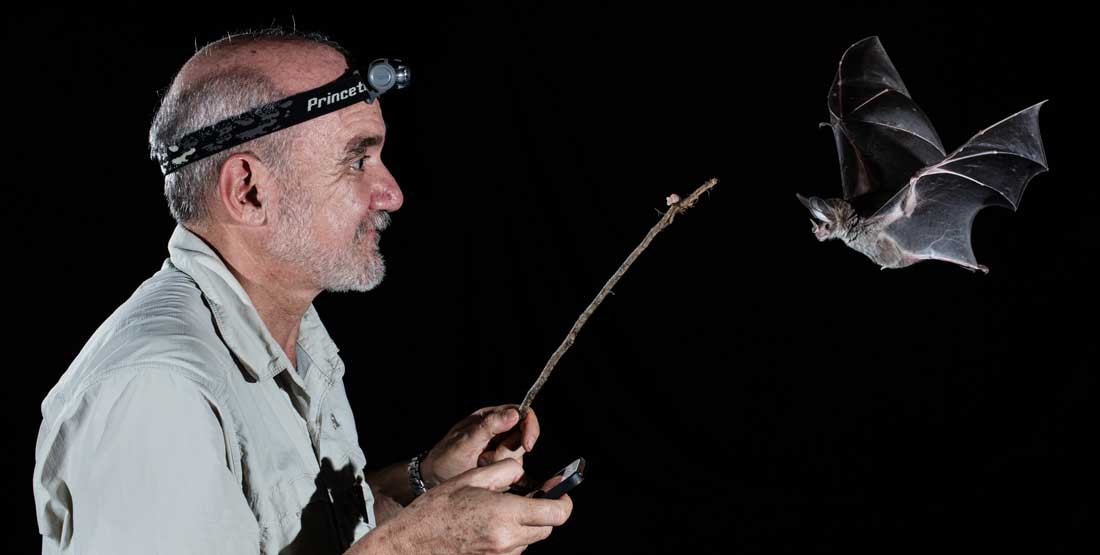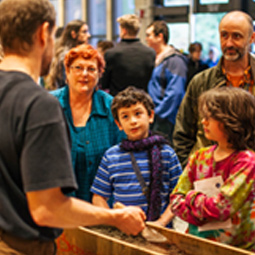Our Nocturnal Allies: Why Bats Matter in Our Everyday Lives
Lecture by the “Bat Man of Mexico,” Dr. Rodrigo A. Medellín
Date & Time
Monday, August 14
1 p.m.
This event is in the past.
Tickets
FREE event;
Registration required.
THIS EVENT IS SOLD OUT
Location
Anderson Hall
Room 223
School of Environmental & Forest
Sciences, UW Seattle Campus

Give bats a break!
Please join us for a special lecture by the “Bat Man of Mexico,” Rodrigo A. Medellín, senior professor of ecology at the Institute of Ecology, University of Mexico, award-winning conservationist, and National Geographic Society Explorer-at-Large.
Popular culture has turned bats into creatures to be feared, but the truth is that bats offer crucial benefits to both the natural world and human societies. With their unique behaviors and adaptations, bats contribute to pest control, seed dispersal, and pollination, making them invaluable to the balance and health of ecosystems.
On August 14, Medellín will discuss the vital role bats play in our everyday lives, from reducing the number of diseases spread by insects to promoting forest growth and even pollinating the plant that is used to make tequila!
In this electrifying presentation, you’ll learn more about these misunderstood mammals, why they don’t deserve their reputation, and how you can join the efforts to protect and conserve them.
Please note: This event is located at Anderson Hall, School of Environmental & Forest Science, UW Seattle Campus.
 About the Speaker
About the Speaker
Rodrigo A. Medellín is a Mexican ecologist and senior professor of ecology at the Institute of Ecology, University of Mexico (UNAM). Known for his work in bat, jaguar, bighorn sheep, and other species conservation, his research has influenced conservation policy and decision-making processes in Mexico and 16 other countries for more than 40 years.
Medellín uses community ecology, plant-animal interactions, population biology, and molecular ecology to solve conservation problems. He and his team have designed and implemented a three-pronged strategy where research, environmental education, and conservation actions feed into each other and contribute to the development of activities in his projects. He is known as an active professor, regularly teaching, and directing theses, and is regarded as a charismatic communicator and lecturer who is sought worldwide.




